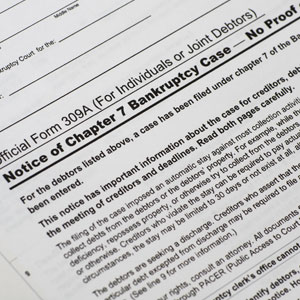
What you will learn from this article:
Filing for Chapter 7 bankruptcy does not necessarily prevent you from qualifying for a mortgage in New York. Financial institutions such as credit unions, smaller banks, and local lenders may look at your entire situation and extend you a mortgage, depending on your circumstances.
Lenders may consider factors such as the reason for filing for bankruptcy and whether you have kept up with payments from recent creditors. They will also consider whether you have enough security, and if you do, they will likely provide financing.
Cars are a necessity in the modern world, and almost every household needs one for transportation. Like many other households, you may require a loan to buy a car. Just like a mortgage, you can still get a car loan in the future after filing for bankruptcy for two reasons:
Overall, most banks will be able to give you a car loan. But you’ll pay considerably higher interest than individuals with a stellar credit score.
One common reason for filing Chapter Seven bankruptcy is to reduce the pressure of debt collection and legal action, which can be worse than the debt itself.
Filing for Chapter Seven bankruptcy triggers a stay of action. It may also momentarily stop wage garnishment pending a determination as to whether that debt has to be paid, which will be made by the trustee in the bankruptcy.
Collection activity in your account is stopped on the day you file. If the debt that was taking money out of your paycheck is discharged, the garnishment also goes away.
Making the decision isn’t one that most people take lightly. If you’re like most people, your greatest concern is how filing for bankruptcy will affect your spouse and your immediate family. Whether filing for Chapter Seven bankruptcy hurts your spouse or not depends on how connected their credit is with yours. Some of the determining factors include:
If your spouse doesn’t join you in the petition and there are no shared debts, the outcome of filing for bankruptcy shouldn’t affect his or her credit. However, your finances and credits may be affected if they are intimately interconnected.
It’s a common myth that you can’t include medical bills in Chapter Seven bankruptcy, yet most bankruptcies are due to the weight of medical bills on a family’s budget.
Straight medical bills not paid by insurance companies can be included when filing for Chapter Seven bankruptcy, but there are exceptions, such as Medicaid funds. These have to be paid through a lien against your assets, like your home. This doesn’t mean that you will be kicked out of your home. But if you happen to sell the house, the Medicaid lien gets paid.
The most important thing to know before visiting any legal law firm to file for Chapter Seven bankruptcy is that these rules and laws are designed to provide reprieve for anyone under financial stress and to give you a fresh start.
However, various misconceptions can make you shy away from using bankruptcy to give yourself a fresh start. If you qualify, take advantage of it. If you’re unsure, speak to a bankruptcy attorney to provide you with some insight.
If you have any more questions about Chapter 7 Bankruptcy an initial consultation is the next best step. To get started, call (315) 624-7777 (Utica) | (315) 624-7777 (Cooperstown) today.